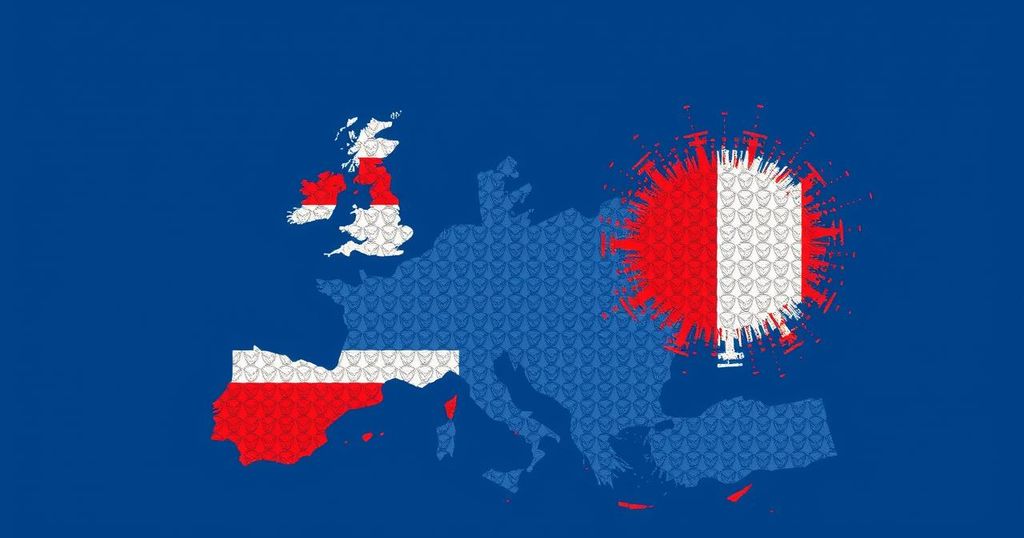As the U.S. elections near, the competition between Trump and Harris presents critical implications for Europe, particularly regarding potential tariffs, business uncertainty, and defense strategies. Trump’s proposed tariffs could cripple EU economies, while Harris’s approach may prompt a reevaluation of economic ties with China. The candidates’ differing defense strategies could also impact Europe, especially in terms of NATO and support against Russian aggression.
As the United States approaches election day, the competition between presidential candidates Donald Trump and Kamala Harris looms large, promising implications not only for America but also for Europe. The outcome bears significance amidst the prevailing economic challenges, the rise of nationalism, and security threats, particularly in relation to Russia’s actions in Ukraine. This article explores three potential ways the U.S. election results could reshape Europe’s landscape. First, the potential for crippling tariffs stands as a primary concern. With the U.S. being the European Union’s largest trade partner, the established trade relationship employs millions and is crucial to Europe’s economy. Trump has expressed intentions to impose tariffs ranging from 10% to 20% on imports from Europe, which could substantially hamper economic growth. Research indicates these tariffs could lead to a GDP shrinkage of approximately 0.23% in Germany. Conversely, Harris is likely to pursue a more diplomatic approach, urging Europe to re-evaluate its economic relations with China, thereby impacting the U.S.-China-Europe triangle negatively. Second, uncertainty in the business environment is anticipated regardless of the election’s outcome. Trump’s approach could rally fears of significant shifts in both economic and geopolitical spheres, creating unease among businesses in Europe. In the realm of technology and innovation, former European Central Bank President Mario Draghi has noted that Europe faces existential challenges and must enhance its technological capabilities. Yet, the European regulatory environment surrounding U.S. tech companies remains a complication, as concerns over antitrust practices create tension in transatlantic relations. Lastly, defense implications are critical as Europe remains reliant on U.S. support, particularly following investments lagging amid rising tensions in Eastern Europe. Trump has raised alarms by suggesting he might withdraw from NATO, which raises fears of decreased U.S. commitment. On the other hand, Harris’s foreign policy parallels that of President Biden, indicating continued support for NATO and Ukraine. The potential for far-right leaders in Europe to gain momentum from Trump’s actions can further complicate transatlantic relations.
The significance of the upcoming U.S. elections cannot be understated, particularly regarding their potential impact on Europe. The continent has become increasingly reliant on American trade and military support amid ongoing economic fluctuations and nationalistic movements. Leaders in both the U.S. and Europe recognize that the election outcome could drastically alter their economic and security dynamics. By analyzing the potential approaches of each presidential candidate, it becomes clear how European nations might navigate the uncertain waters ahead in response to the chosen leadership in America.
In conclusion, the U.S. election results could considerably alter the trajectory of Europe’s economy and security framework. Implementing tariffs could dampen economic growth and hinder technological advancement while perpetuating uncertainty within the business landscape. Furthermore, the defense strategies could pivot based on the candidate in power, potentially reshaping NATO’s relevance and stability in the face of increasing geopolitical tensions. The implications are not merely theoretical; they require careful consideration by European policymakers in order to address the challenges that arise from a changing U.S. administration.
Original Source: fortune.com






